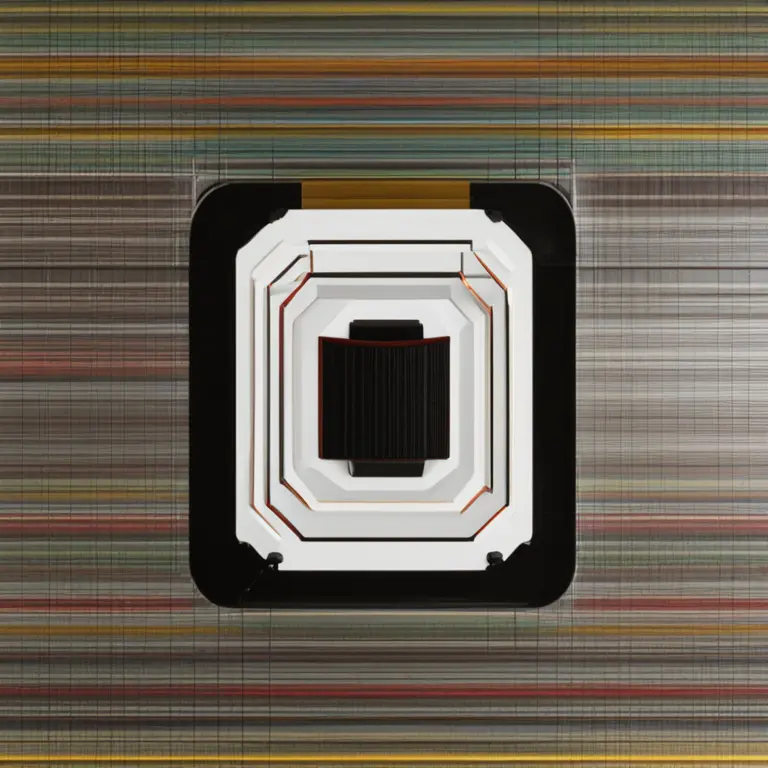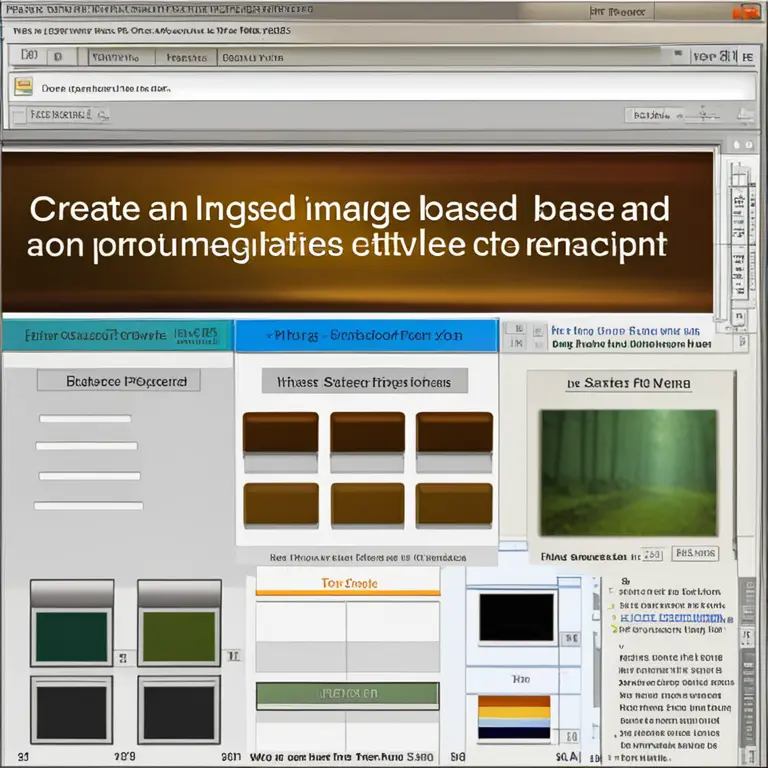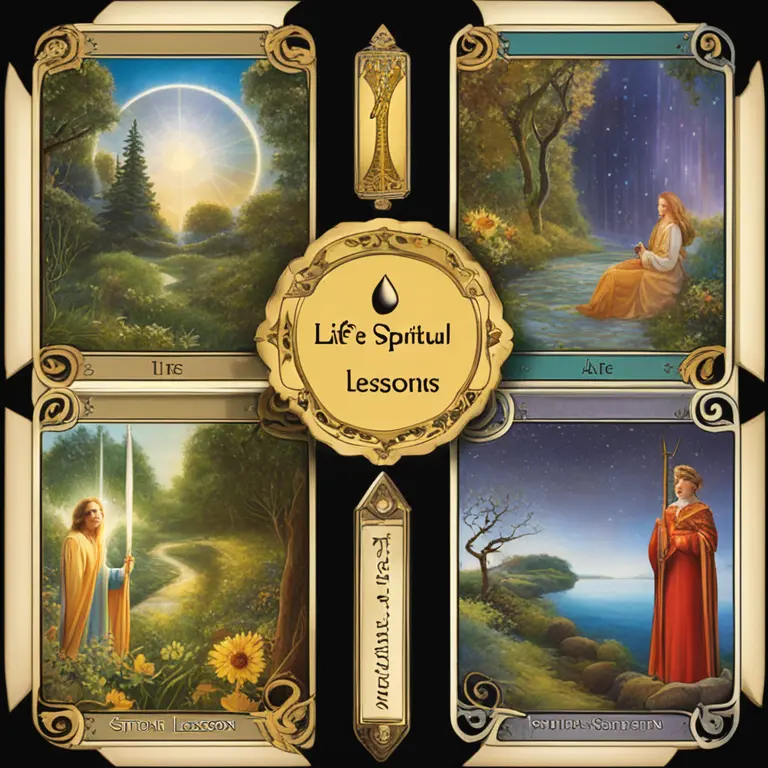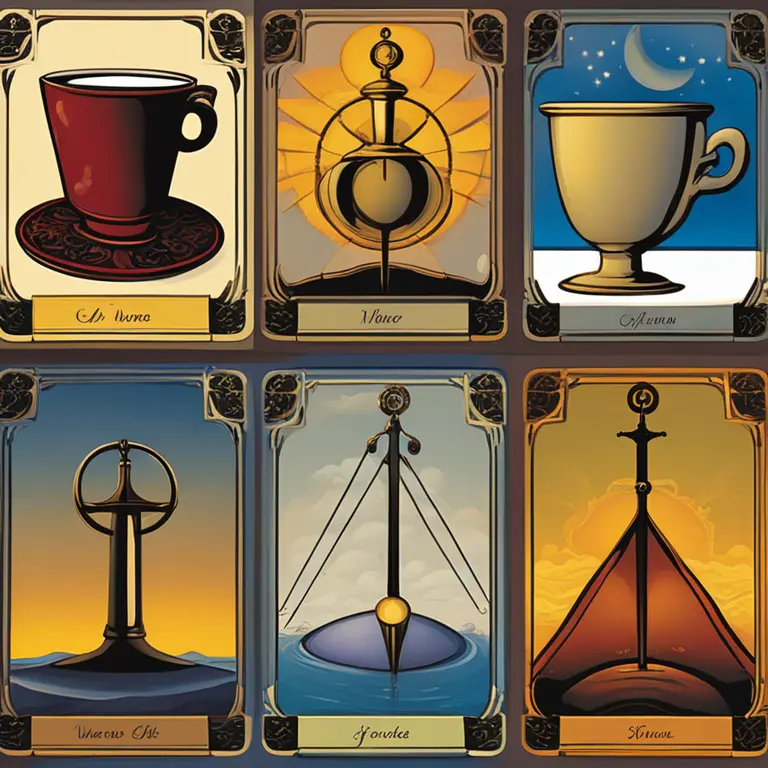
The Roots of Tarot Symbolism
Tarot art is not merely a collection of random figures and colors. Each card in a tarot deck is a repository of symbols, and understanding these symbols is crucial to interpreting the cards. The roots of tarot imagery stretch back to the Renaissance when they were used for games. Over time, occultists imbued the cards with esoteric meaning, transforming them into a tool for divination. Symbols within tarot tap into universal archetypes and human experiences, making them relatable across cultures and ages. The Fool card, for example, represents new beginnings and infinite potential, a theme that resonates with anyone embarking on a new journey.

Major Arcana: Life's Spiritual Lessons
The Major Arcana of the tarot consists of 22 cards, each depicting a stage on the journey of life. From The Fool to The World, they symbolize the spiritual lessons and challenges we face in our lifetime. The artwork on these cards is particularly significant, often involving complex imagery that includes mythological figures, astrological signs, and kabbalistic references. As we transition into the year 2024 and beyond, the cyclical nature of these tarot figures may reflect the collective consciousness seeking wisdom and enlightenment. Studying the pictorial details can provide a reflective mirror for our own growth and understanding.

Minor Arcana: The Painted Details of Daily Life
The Minor Arcana, consisting of 56 cards, represents the more practical aspects of life through its four suits: Cups, Wands, Swords, and Pentacles, each corresponding to an element like water, fire, air, and earth. The diversity in tarot art for these cards captures the vast array of human emotions and situations we encounter daily. An artist’s interpretation can breathe new life into these scenarios, making the scenes depicted on the cards relevant for those seeking guidance from the stars in the upcoming years. The Queen of Cups, as an intuitive and caring figure, could be seen as an empathetic listener to the evolving emotional needs of society.

The Approach of Contemporary Tarot Artists
Modern tarot artists often take liberties with traditional symbology to reflect contemporary culture and ideologies. This involves maintaining the essential framework of tarot symbolism while weaving in current themes—such as inclusivity, environmentalism, or technological advancements. As a result, tarot decks can be both timeless and timely, providing insights that cater to current global shifts, such as the collective move towards greater awareness in areas like mental health and social justice, especially poignant in the 2024 context and beyond.

Collecting Tarot as Art
Beyond divination, tarot cards are collected and appreciated as art. The vibrant gallery of images in a tarot deck is a display of creativity and artistic expression that holds value to collectors and enthusiasts of mystical art. Many collectors focus on acquiring decks that showcase specific artistic styles or themes, making these collections a diverse reflection of the tarot's rich visual heritage. Future tarot artists will undoubtedly continue to push these artistic boundaries, offering new decks that capture the ever-evolving tapestry of human consciousness.
Published: 1/17/2024
Modified: 1/17/2024
More predictions
Come back here soon to learn more about yourself and your future


Do Tarot Cards Reveal Your Future Spouse?
Discover if tarot readings can provide insights into meeting your future spouse and how tarot symbolism unfolds the secrets of love and partnership.


The Reality of Tarot in Personal Insight
Explore how Tarot readings can offer profound personal insights and guide you through life's complexities.


Beginner's Guide to Tarot: A Simple Start
Your journey into tarot starts here. Discover the essential insights of tarot reading in a simple, accessible guide for every beginner.